Clara Schumann’s early life
Clara Schumann (born Wieck) was born on September 13, 1819 in Leipzig, Germany. Her father, Friedrich, was a musician. He taught piano, started a lending library, and opened a shop where he sold musical instruments.
Friedrich Wieck was a well-respected music teacher. His students included his future wife and mother of his children, Marianne. He also taught Robert Schumann, the man who would become his son-in-law. Clara was also one of his pupils. Her radiant talent shone brightly. She made her first stage debut as part of a duet with him at age seven playing “Variations of a March” from Moses.
Clara grew up with a strong appreciation for music fostered by her father. He made sure she was trained to produce a decent body and taught her a wide spectrum in music. Clara’s father was not the only early musical influence. Her mother was also a talented singer. This foundation and appreciation of both voice and piano, Clara would grow up to write compositions for both.
Her parents divorced when Clara was five. She and her siblings stayed with their father. Her mother remarried moved to Berlin. She stayed in contact with Clara through letters and occasional visits.
Clara performed solo for the first time at age nine. Two years later she made her formal debut at the Leipzig Gewandhaus, a concert hall noted for its harmonious acoustics. She toured Europe at age twelve with her father and achieved accolades and great success throughout Germany and Paris. She was one of the first musicians to perform from memory.
Coming into her own
Clara wrote a piano concerto at age 14 with the help of her future husband, composer Robert Schumann. Although she was an accomplished musician and he was an unknown composer, the two eventually fell in love. After four years of being torn between her father, who saw no future for his daughter with Schumann, and the man she loved, the couple wed on September 12, 1840, the day before her 21st birthday.
Clara and Robert had eight children. She didn’t let raising a family stop her, though. She continued to perform, compose, and teach piano. She supported her husband’s career. Clara arranged his music for piano and often performed them in concert as an injury prevented him from performing in public. He included snippets of her compositions in his. Clara also championed other composers’ works and introduced compositions by Bach, Scarlatti, Beethoven, and Schubert in ondert.
Robert Schumann was a tortured soul. He attempted suicide in 1854 and was committed to a sanitorium. Clara was forbidden to see him because his doctors deemed him dangerous. She didn’t see him again until shortly before his death in 1856. Clara had to rely on support from close friends. None was closer than Johannes Brahms.
On her own
Clara’s passion did not die when her marriage to Robert ended after his death. It is hard to deny that she had a relationship with Johannes Brahms but they likely didn’t marry because he was fourteen years her junior and felt it would not be a suitable marriage. Instead, she taught at the Frankfurt Hoch Conservatory and continued to concertize until 1891. She passed away in Frankfurt on May 20, 1896.
A woman of her time, Clara Schumann saw herself a performing artist, not a composer. Women were not expected to excel in music. She stopped writing at 36. “I once believed that I possessed creative talent, but I have given up this idea; a woman must not desire to compose – there has never yet been one able to do it. Should I expect to be the one?” Fortuneately, h
Recollections fashions are inspired by history. Here are a few examples of fashions Clara Schumann might have worn.
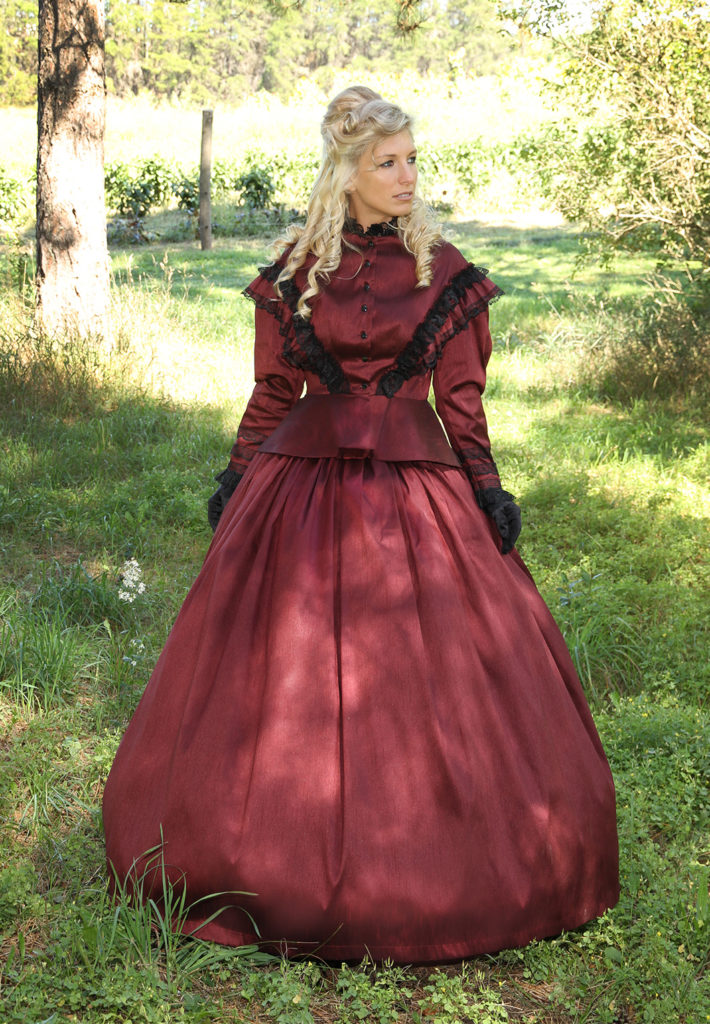
Civil War Styled Set 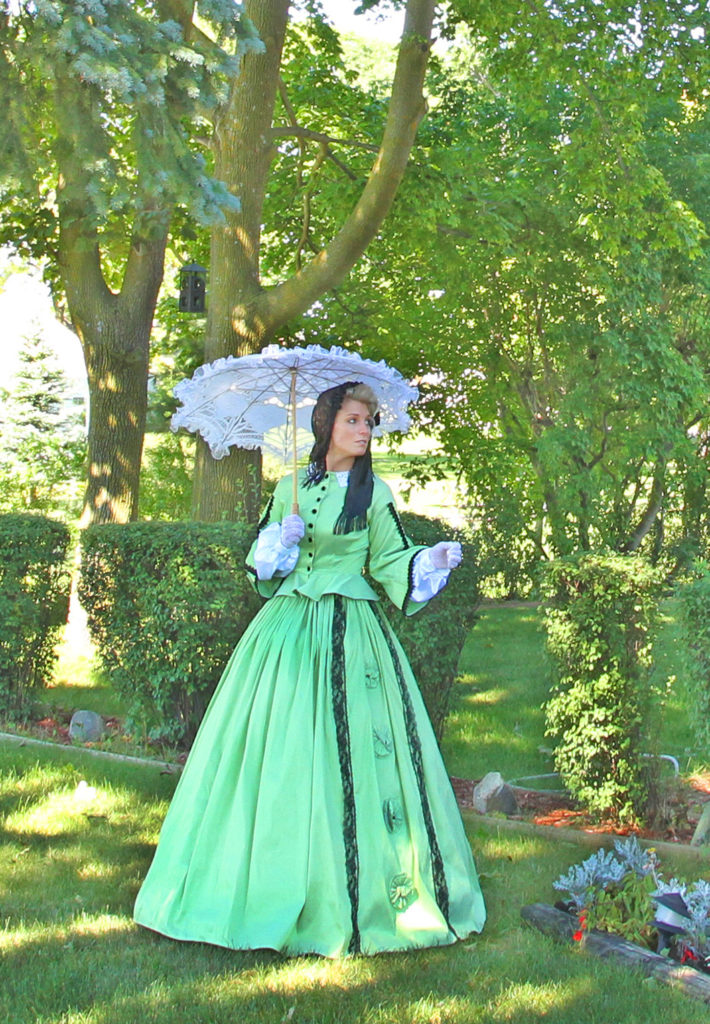
Margaret Civil War Victorian Styled Gown 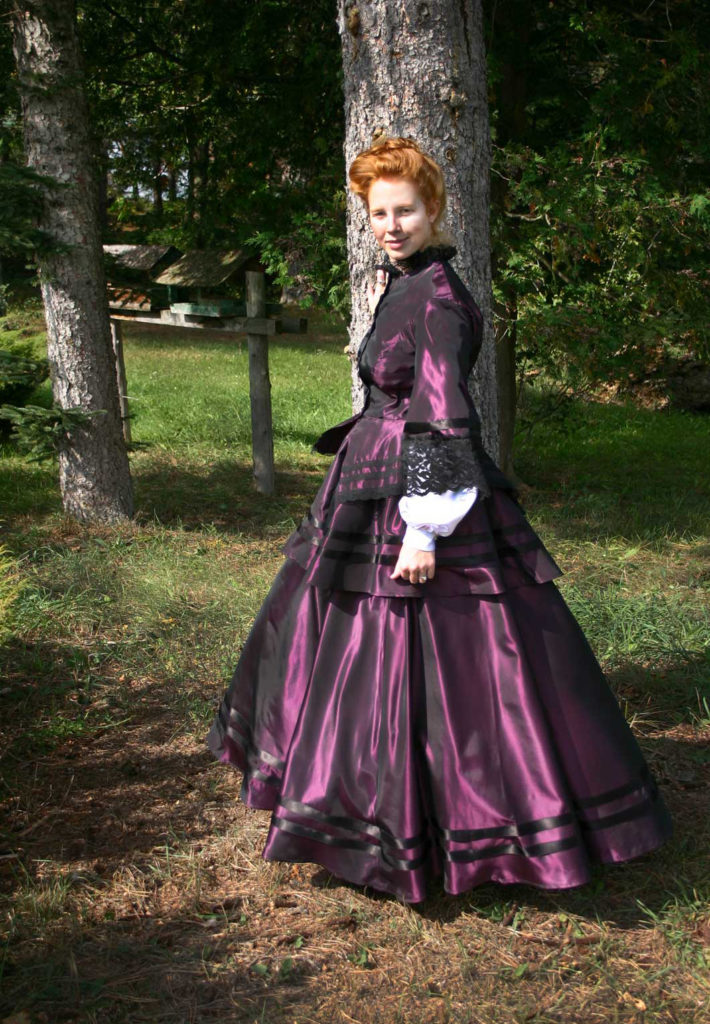
Victorian Civil War Jacket and Skirt Gown
Sources:
Clara Schumann
Clara Schumann
Clara Wieck Schumann
— Isabell Harkins

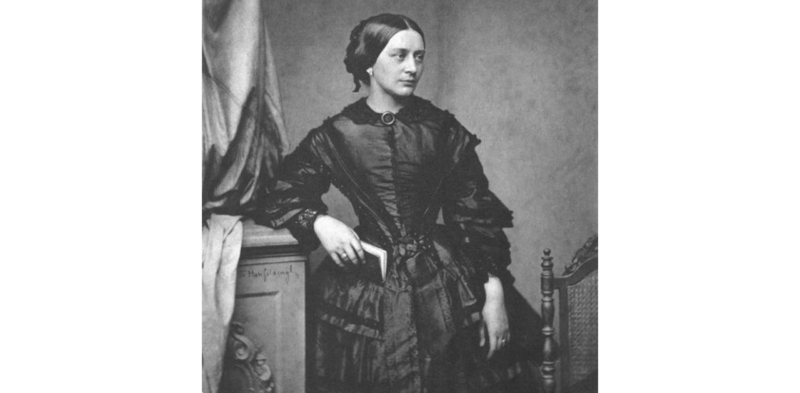
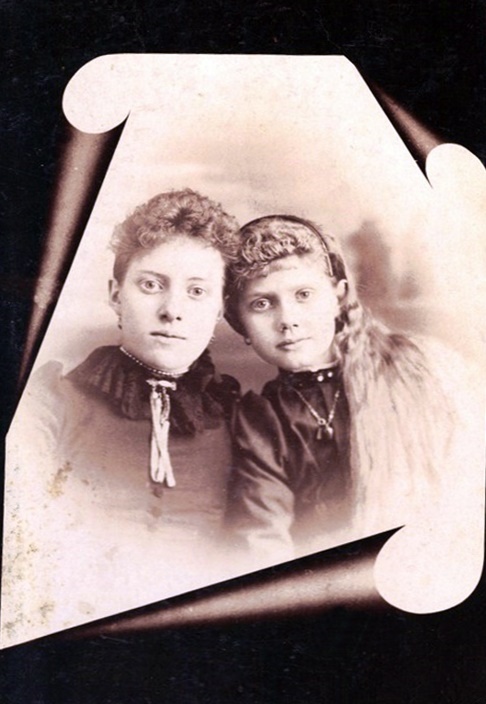
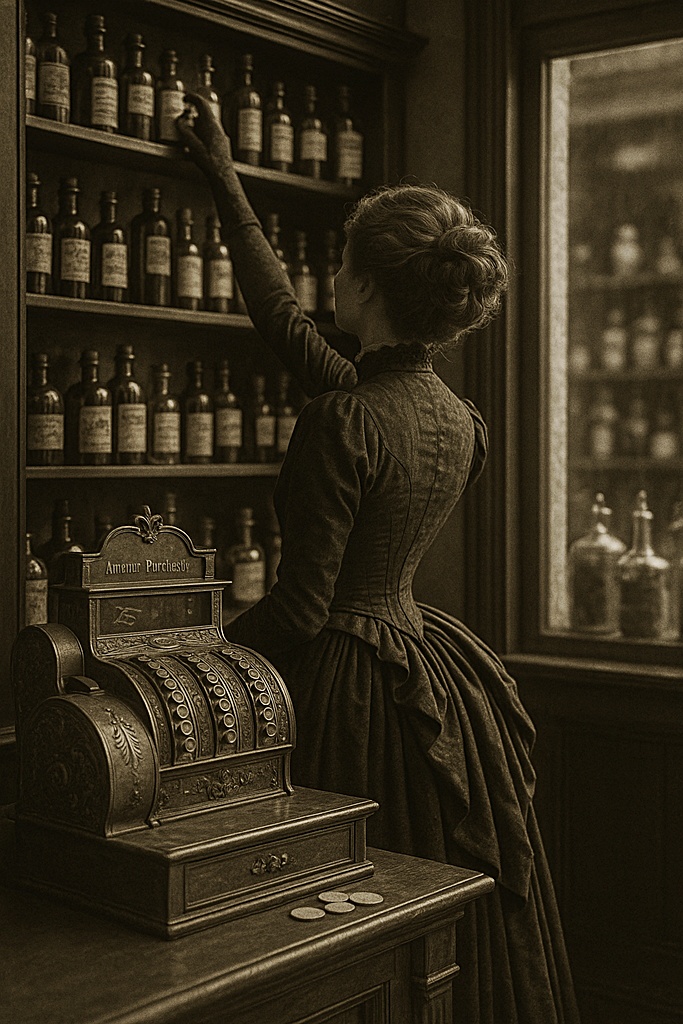
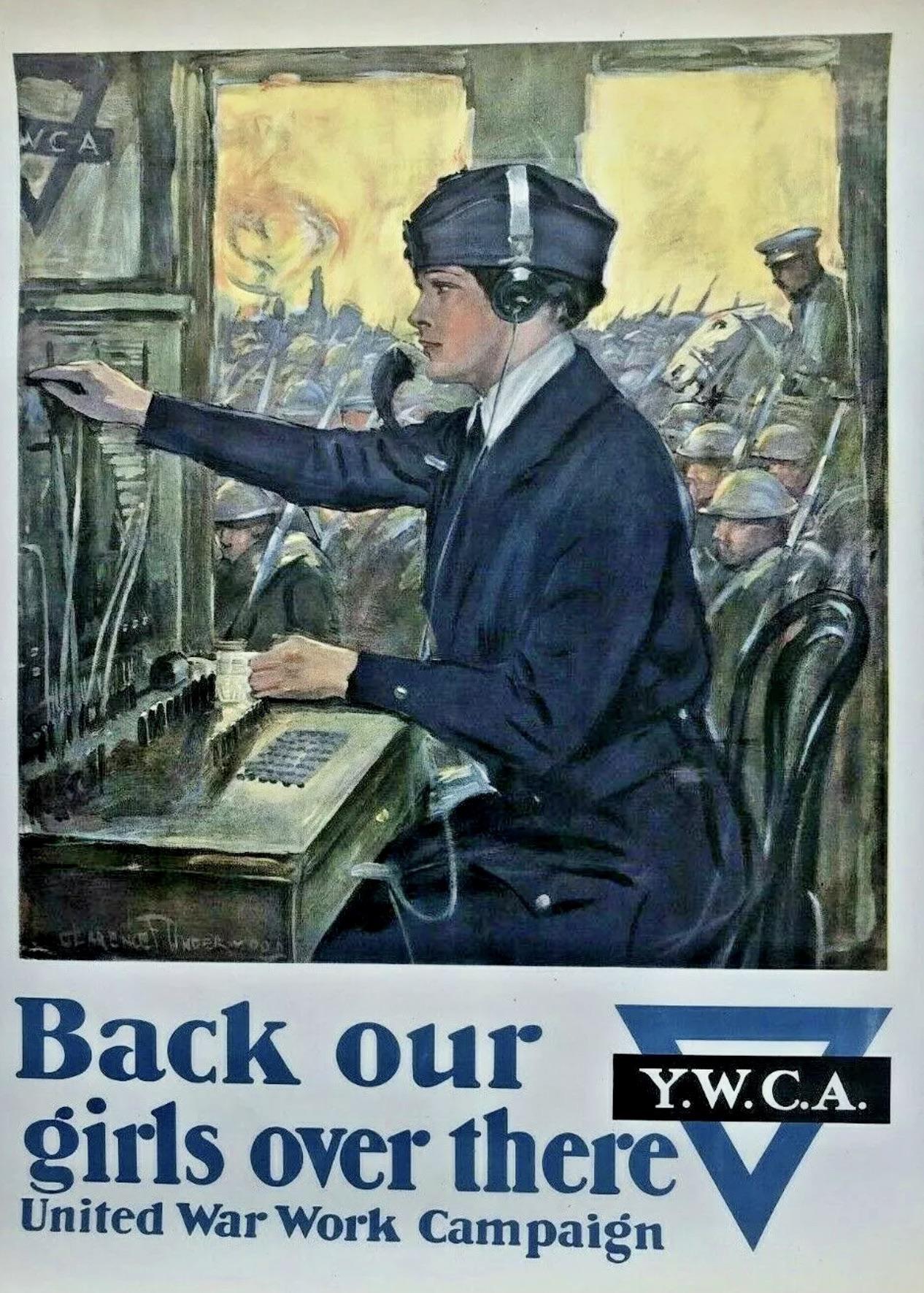
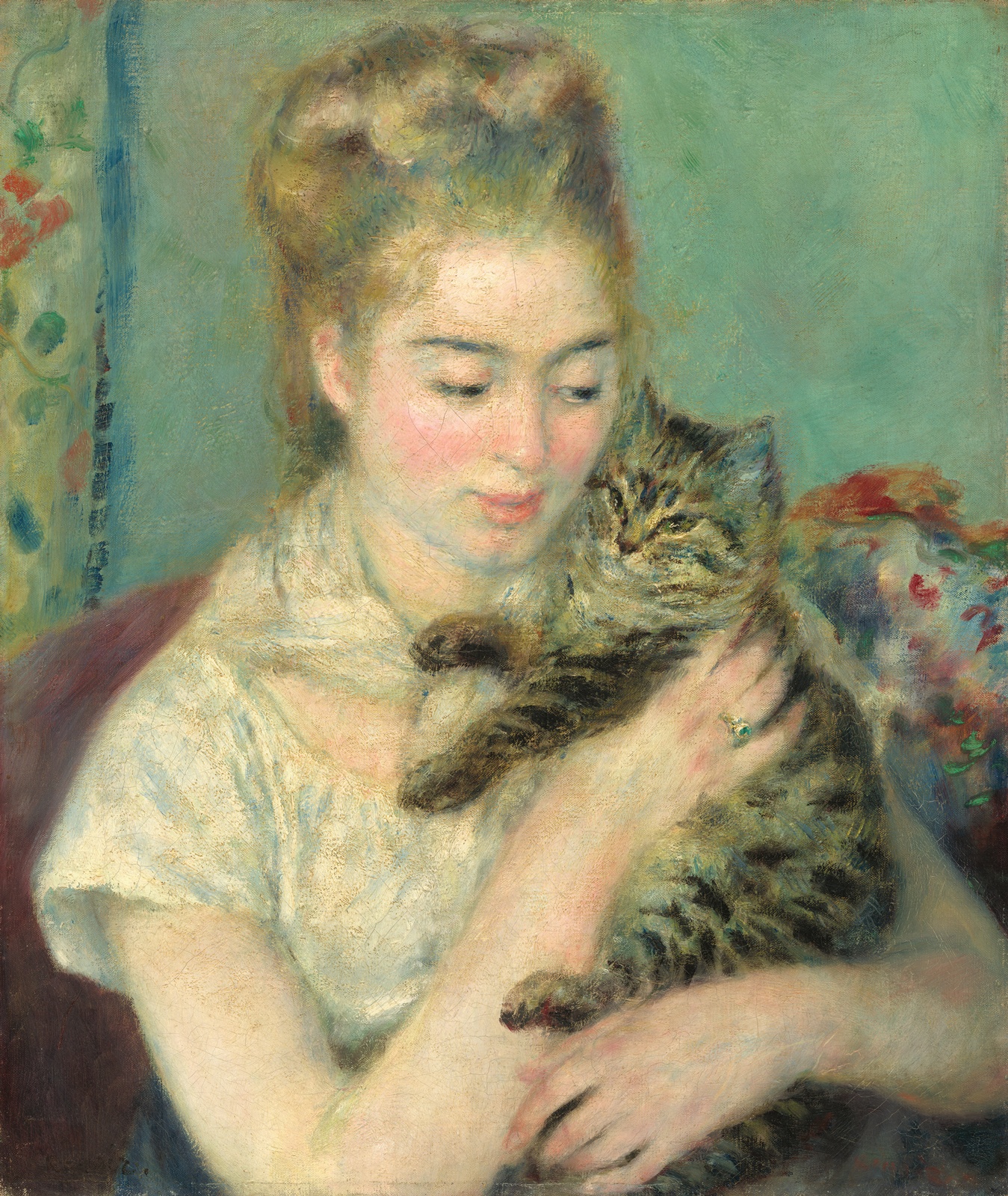
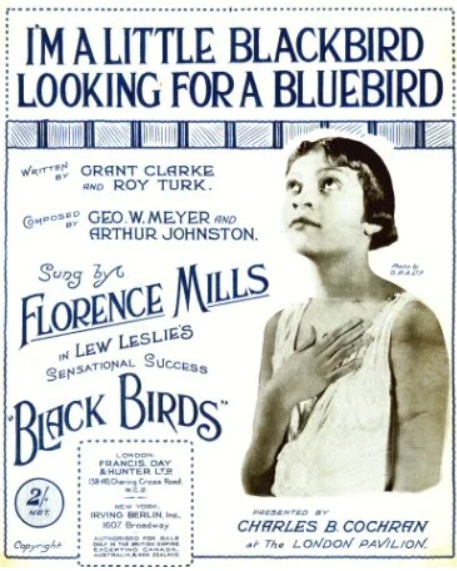

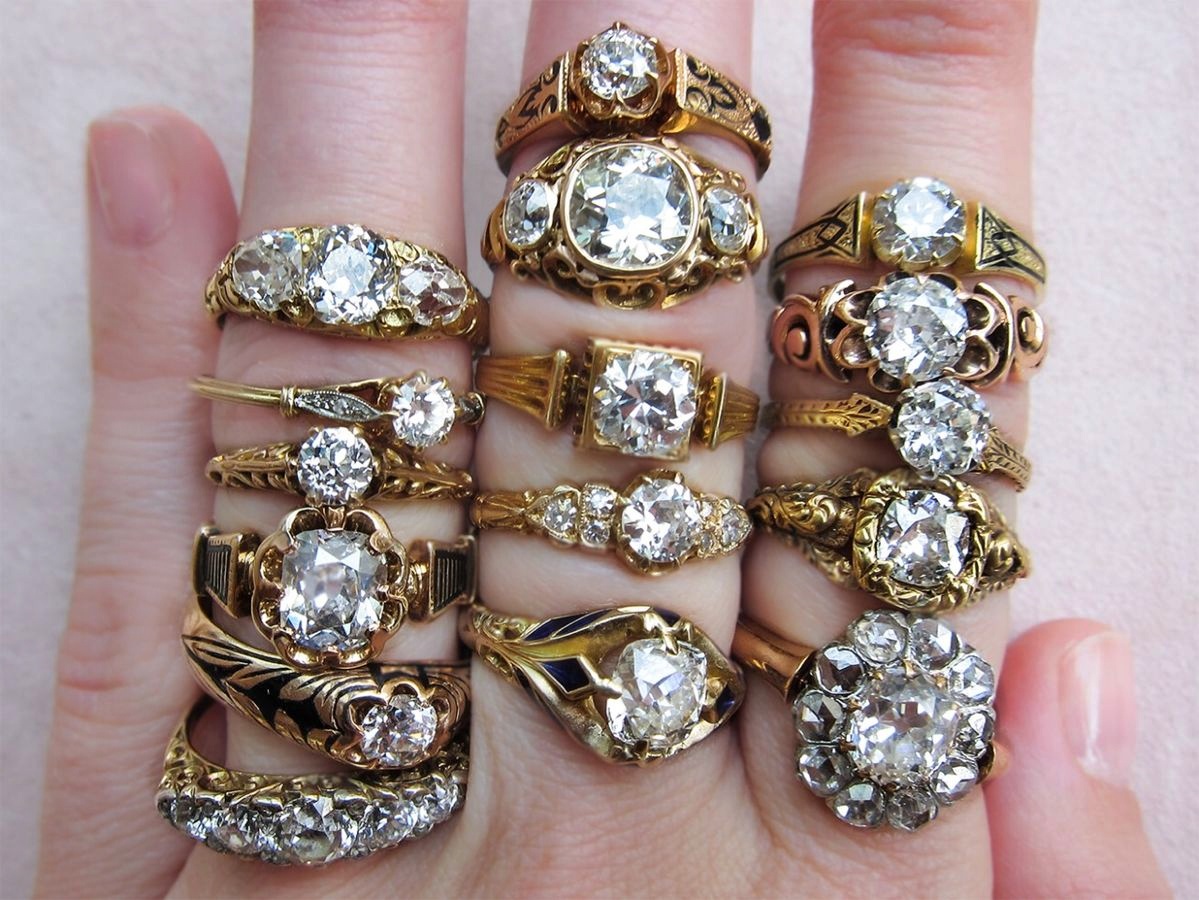
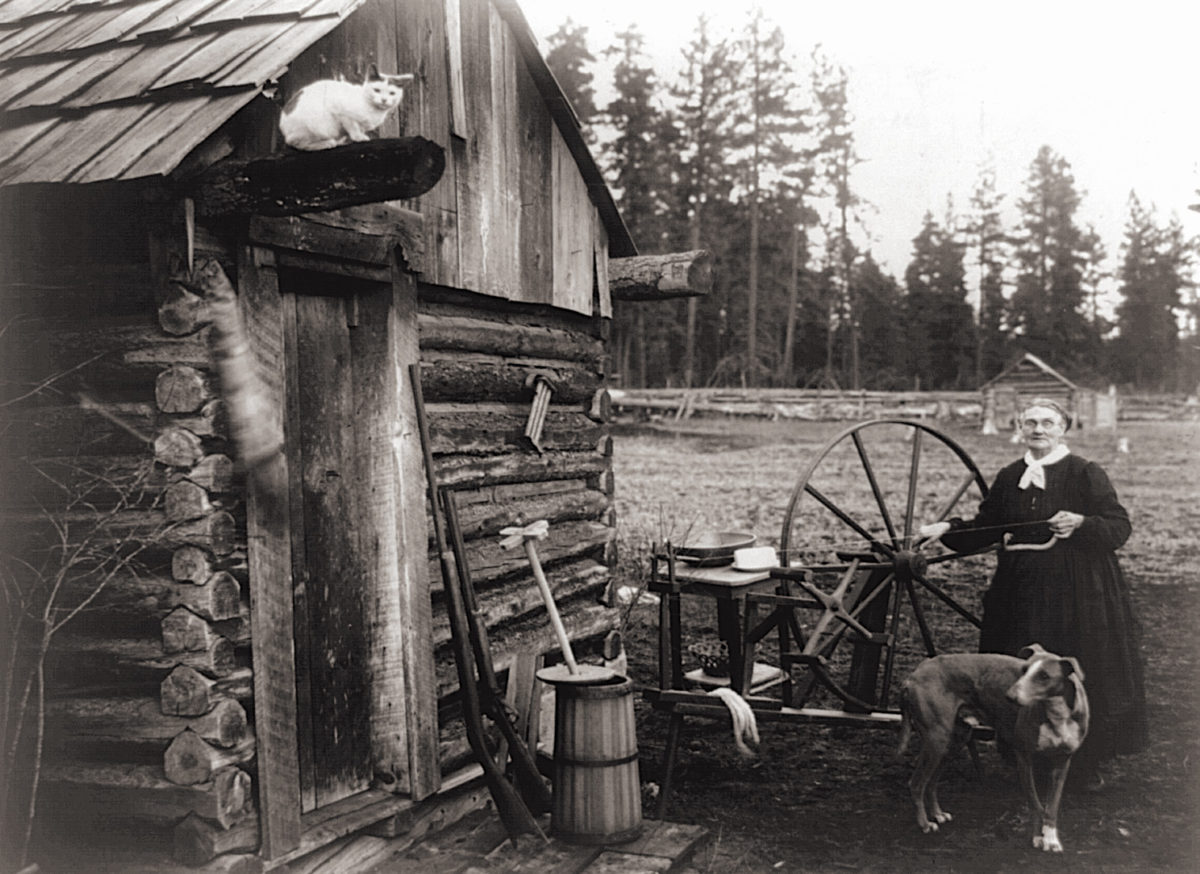
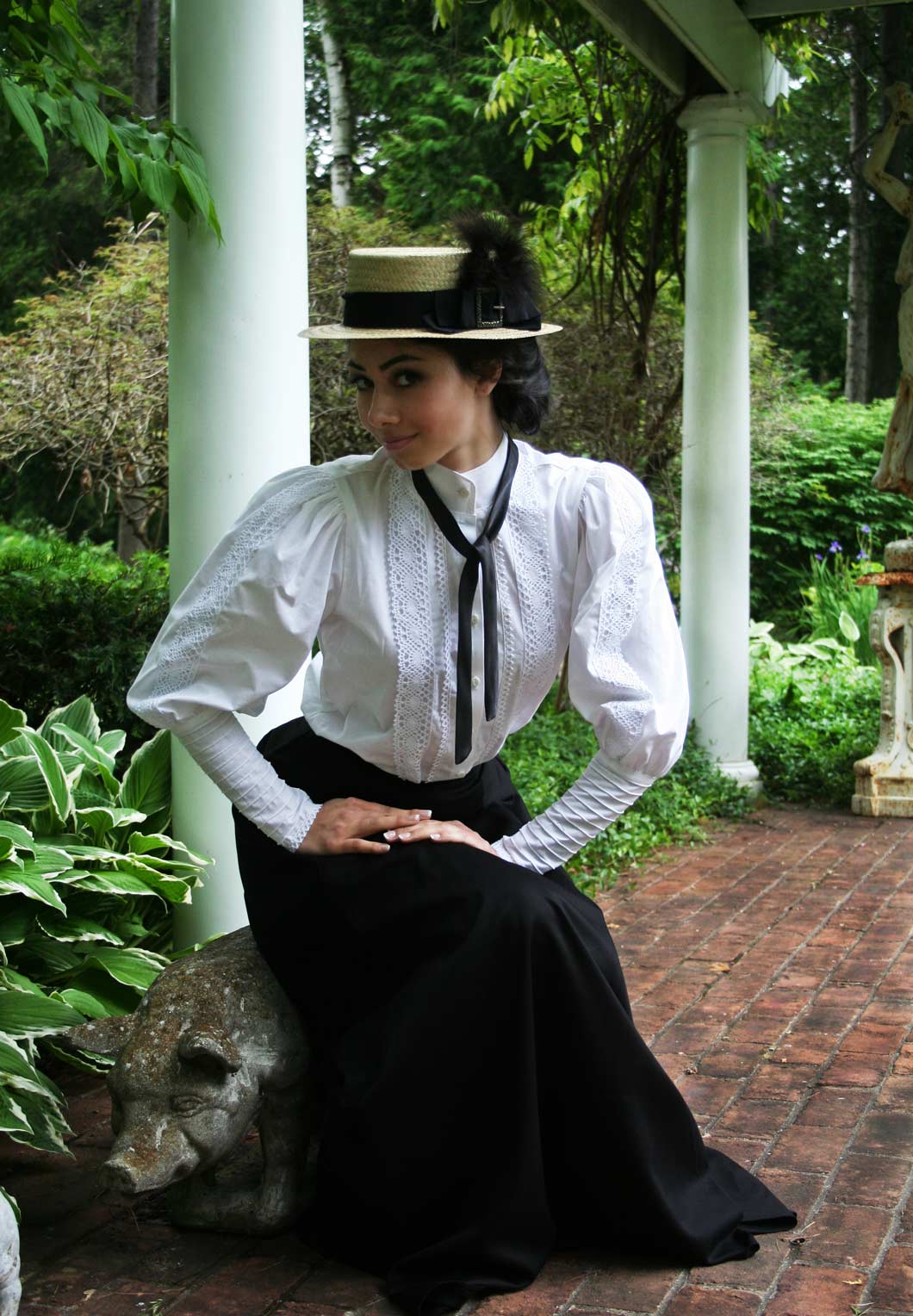
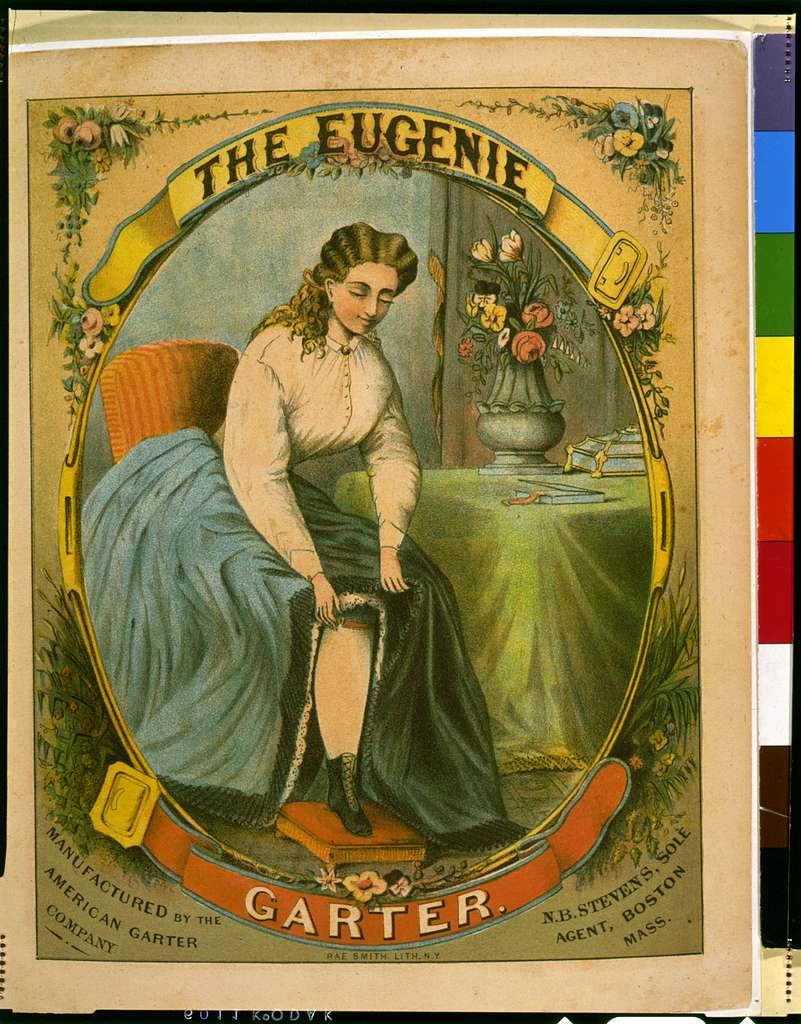
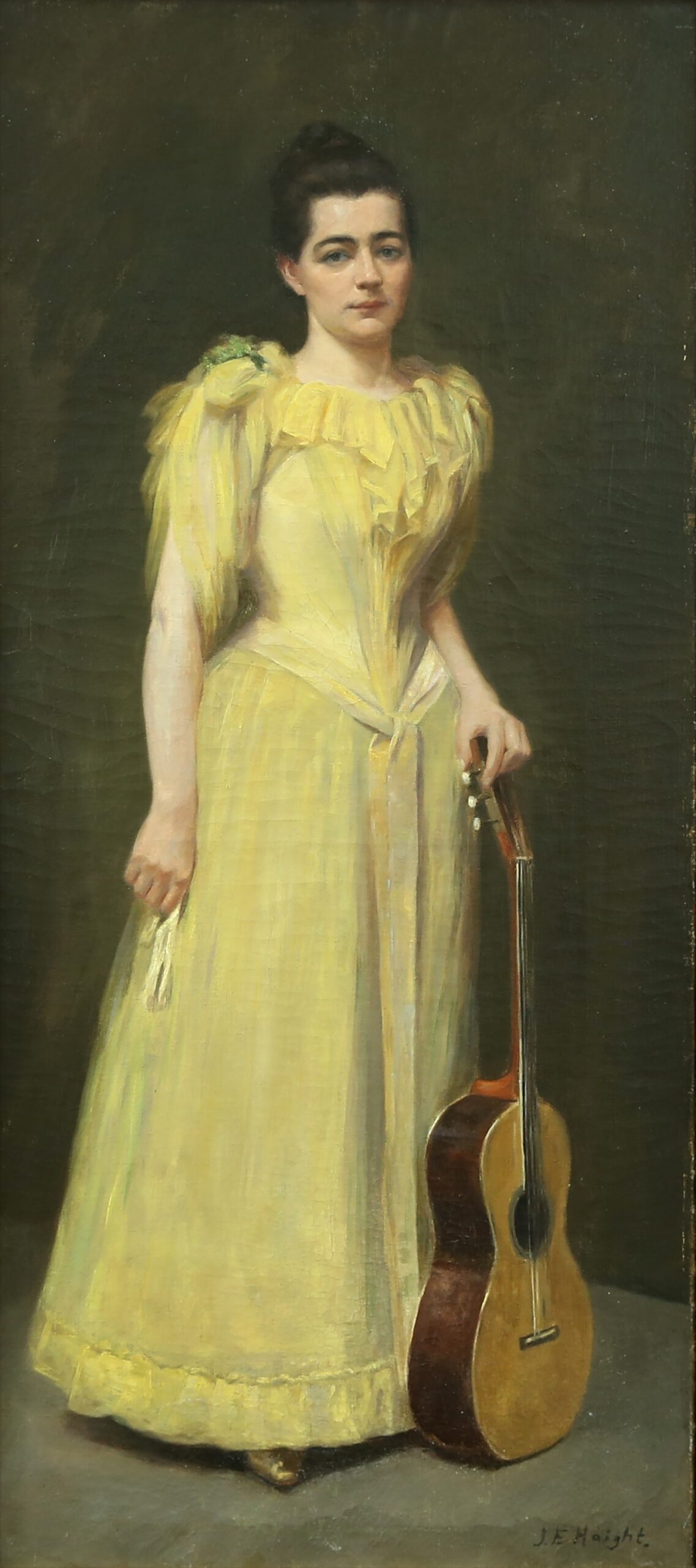
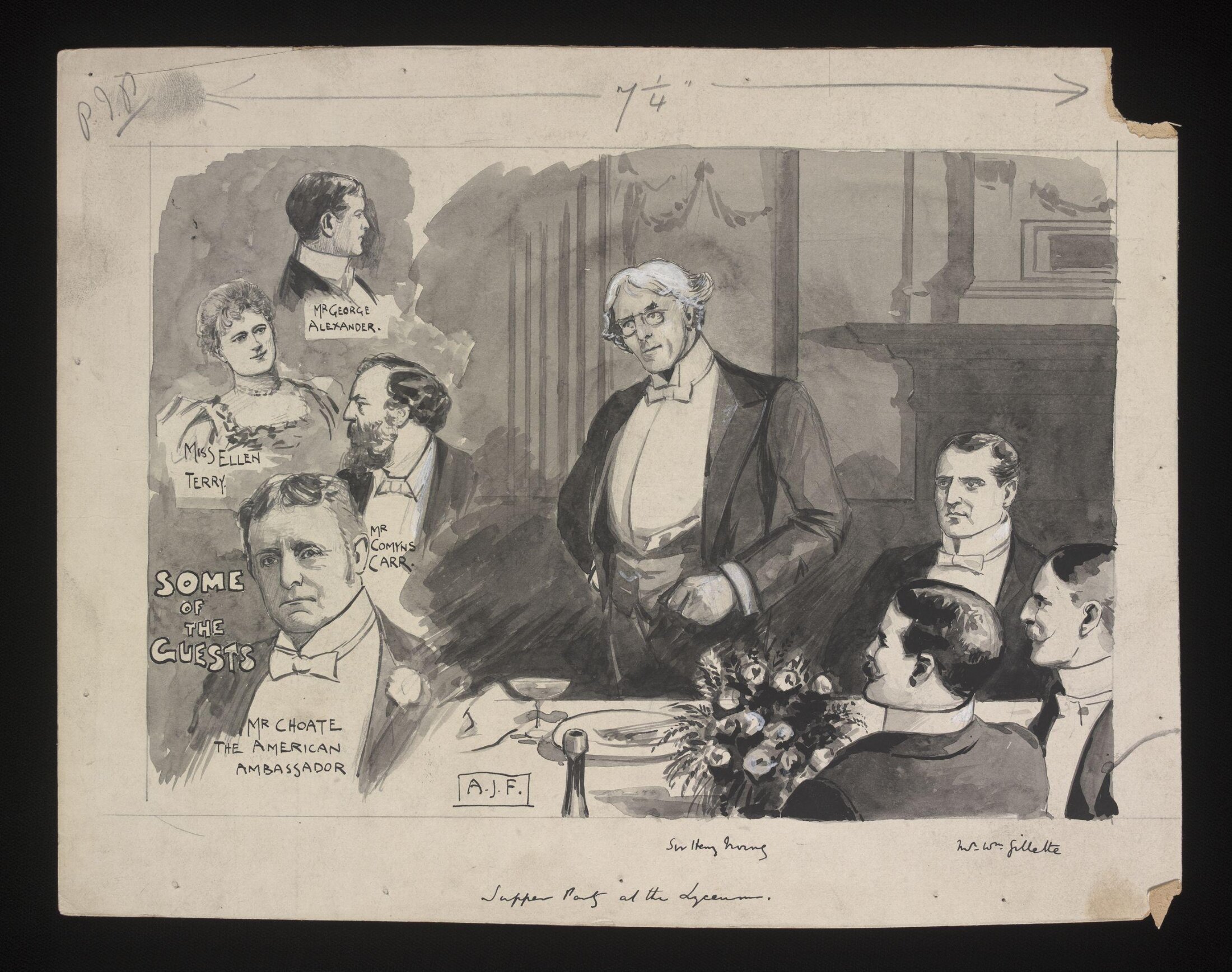
Leave A Comment